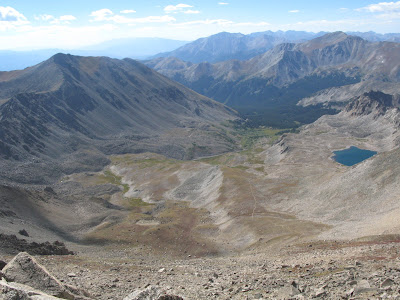See the picture of the truck from my last post? I named him Mater, after the beat-down pickup truck character in the Pixar movie Cars. He's parked right on the edge of a farm up on Salisbury Street, a road that extends north out of West Lafayette into stretches of corn fields and windmill farms. A "$1200 obo" sign is taped to his window. I often ride my bike up Salisbury for the scenery, and am just fixated with Mater every time.
When I finally took my camera out to take photos of the truck, the farmer came out and asked me if I wanted to buy him. I had to explain that I have a fascination with old things, antique machinery, used pieces, to which the farmer invited me to the plowing of his field the next day. There'd be thirty tractors doing the plow, he said, a lot of them antique. There'd be a potluck for lunch, and oh, my name is Tim, nice to meet you. How could I refuse?
The next day, my friend and I arrived and immediately were shepherded to Tim's brother's garage, full of a dozen old mid-century vehicles. I was smitten. This green one dates back to the 1920's and used to be a school bus, can you imagine? The seats inside were wooden, and the inside wasn't tall enough for me to stand up straight.

In Indiana, corn is king, and I figured that these farmers could tell me everything I wanted to know about how it's grown, where it goes, how much they produce, what the profits are like, what subsidies they get, where it's stored. The whole time they were telling me these things, I kept thinking back to Michael Pollan's Omnivore's Dilemma, a book I read a few years back that sealed my fascination with agriculture and the food system.
It is so easy on principle to put down corn farmers for producing way too much of this one thing at a detriment to the health of the country's people and the environment. But actually interacting with these farmers made me realize, crucially, that like any other people working to produce, the short-term economics will prevail over the philosophy and the long-term consequences. The seed these farmers used are Monsanto-patented, and the reason they do this is solely because it is profitable. To change the flow of this system, it is not enough to indoctrinate people on what is sustainable or healthy. All big changes start with economic incentives, not moral ones.
I should stop myself before digressing further. This is a long, long, long discussion for another day.
They told me I could wallow in this huge repository of corn, but I politely refused, as good of a photo-op as that would have been.





Afterwards, we were graciously invited to their pot-luck lunch, and despite fearing that I was overstaying my welcome, they insisted, and I helped myself to delicious chili and cobbler. The plowing was a community event; all the neighbors were there, and most of Tim's extended family.
One unintended result of moving to Indiana is that I can stop just reading about agriculture. Here, I have people to talk to. As I start to think about these things more and more, I'm sure I'll come up with plenty of questions to ask.














































